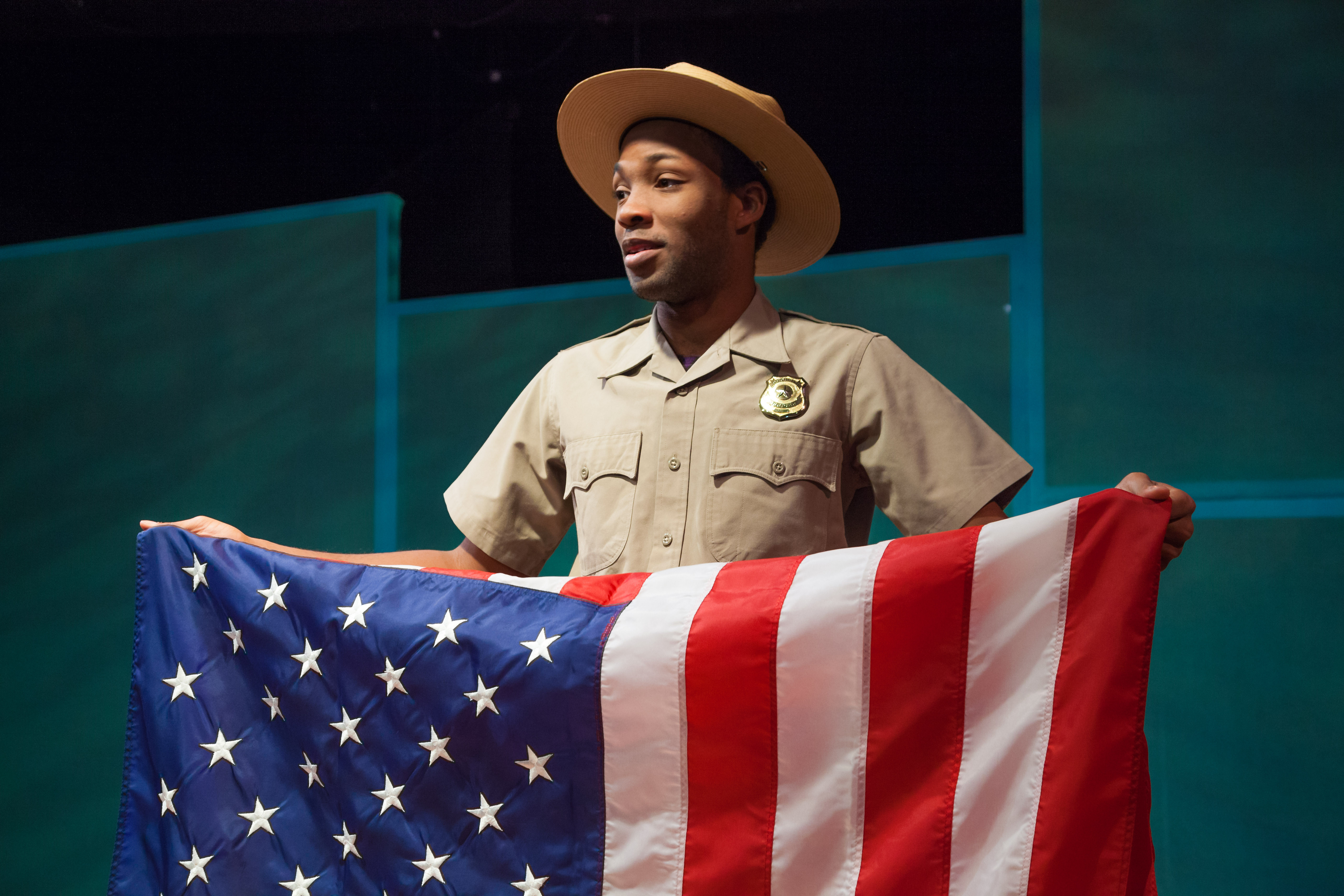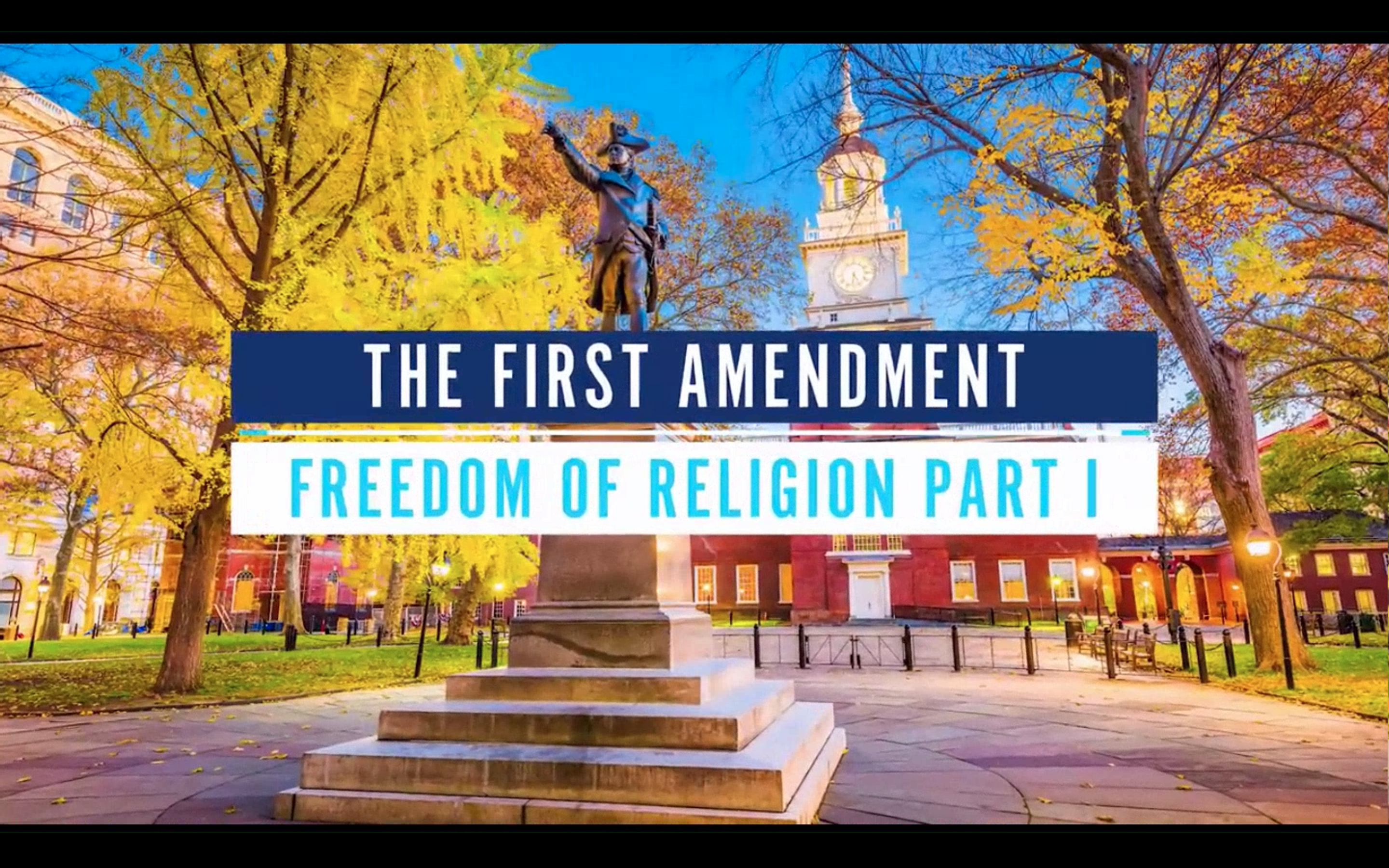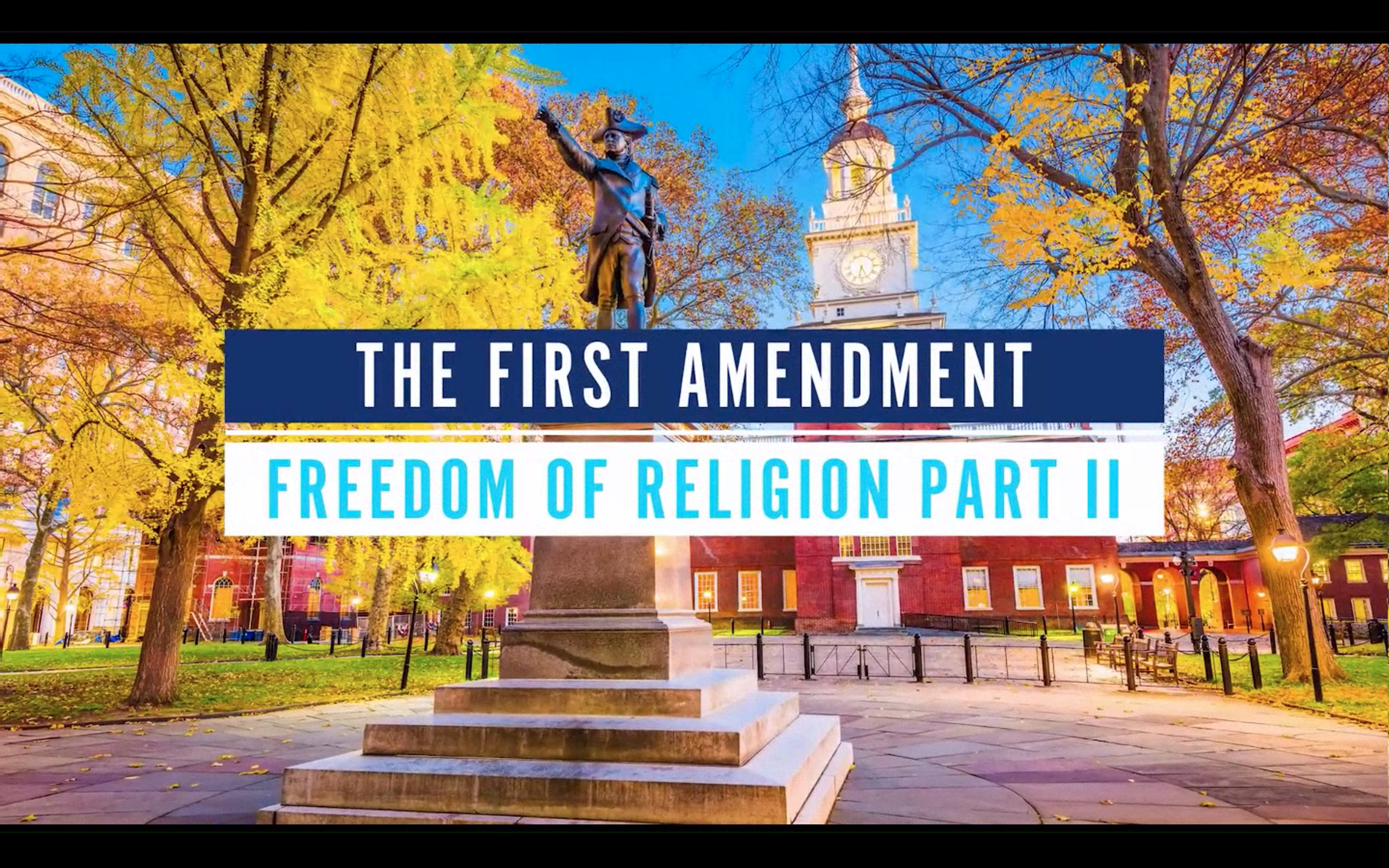Classroom Resource Library
Resources for…
Search Within…
First Amendment Series: Jimmy Kimmel, ABC, and the First Amendment
What does the Constitution say about free speech on the airwaves?
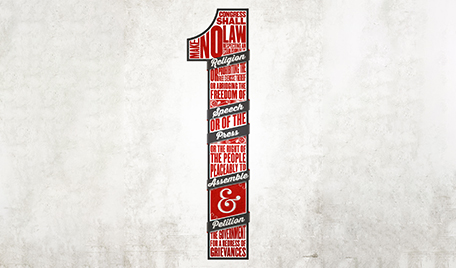
Intellectual Inspirations of the Constitution and Its Impact Today
How did Enlightenment and classical thinkers shape the Constitution? How do their ideas still guide American government today?
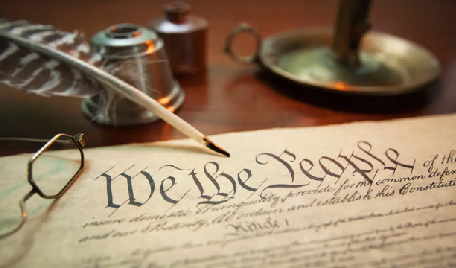
Our Fragile Freedoms
Pulitzer Prize–winning historian Eric Foner discusses Our Fragile Freedoms, a new collection of essays exploring a range of topics, including debates over slavery and antislavery, the Civil War and Reconstruction, Jim Crow and the battle to dismantle it, and modern debates over the Constitution and how to teach American history.
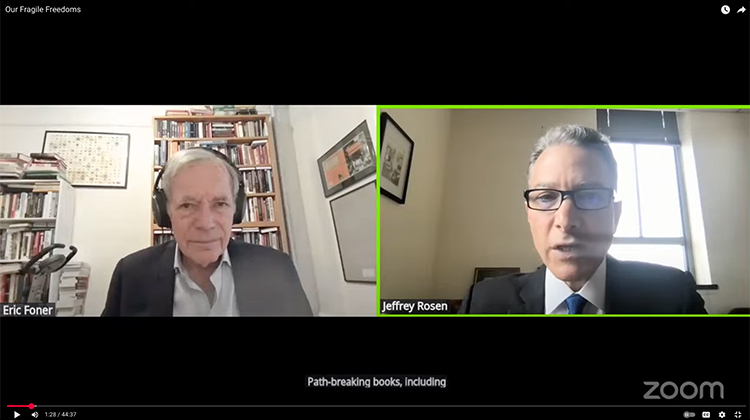
An Evening With Justice Amy Coney Barrett
U.S. Supreme Court Justice Amy Coney Barrett joins National Constitution Center President and CEO Jeffrey Rosen for a special Constitution Day conversation to discuss her new book, Listening to the Law: Reflections on the Court and the Constitution.
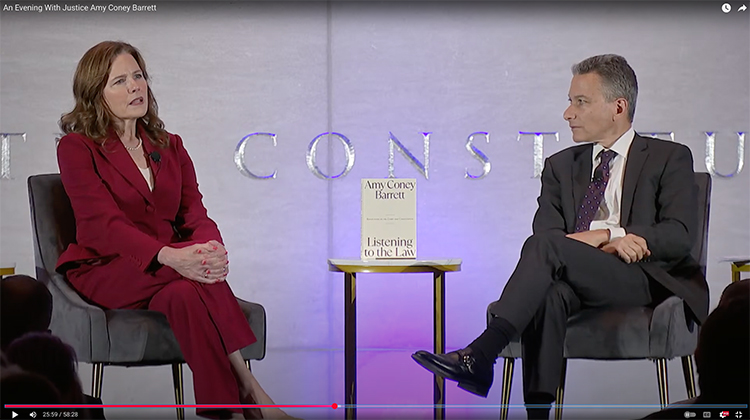
Born Equal: America’s Founding Promise and the Fight for Equality
Constitutional scholar Akhil Reed Amar discusses his new book Born Equal: Remaking America’s Constitution, 1840-1920, which explores the transformative amendments that redefined freedom, equality, and voting rights in the post-Civil War era.
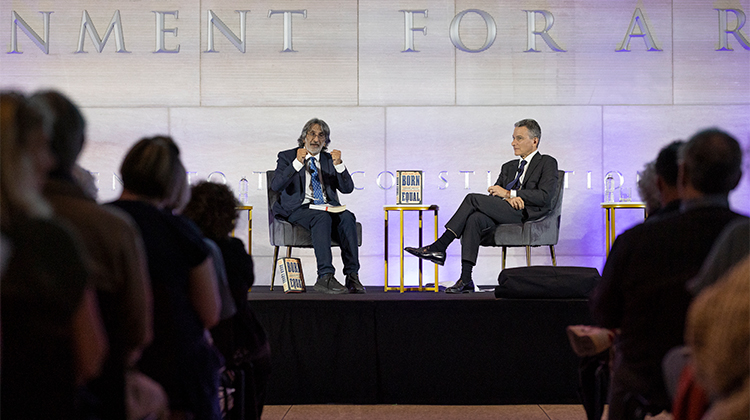
2025 Supreme Court Review: Key Rulings, Public Perceptions, and Constitutional Debates
The National Constitution Center and the Center on the Structural Constitution at Texas A&M University School of Law present a U.S. Supreme Court review symposium analyzing the Court’s most significant rulings of the term.
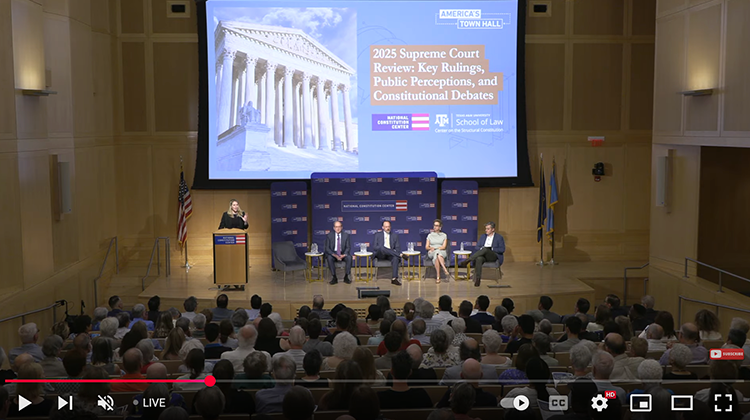
The Story of the U.S. Constitution: Past and Present
Acclaimed scholars Akhil Reed Amar, David Blight, and Annette Gordon-Reed join for a sweeping conversation about the Constitution and the debates that have shaped America.

W.E.B. Du Bois and His Impact on America With David Levering Lewis
Pulitzer Prize–winning historian David Levering Lewis explores Du Bois’ life, legacy, and enduring impact on American history.

Habeas Corpus, Past and Present
There’s been renewed talk in Washington, D.C., about suspending habeas corpus, the constitutional right that protects people from being detained without justification. On May 9, 2025, White House Deputy Chief of Staff Stephen Miller suggested the Trump administration is considering suspending this right in the context of immigration enforcement, arguing the Constitution allows it in times of invasion.
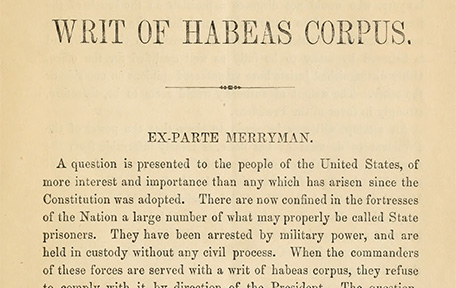
Executive Authority: Presidential Power From America’s Founding to Today
Legal scholars Gillian Metzger and Saikrishna Prakash examine the key constitutional debates that have shaped the modern presidency, how the Trump presidency fits within this historical context, and what it means for the future of presidential power.

Jewish Americans in the Civil War Era
Authors Richard Kreitner and Shari Rabin discuss their new books on the broader Jewish experience from the Revolutionary era to the Civil War, how American Jews reckoned with slavery, and Jewish participation in the Civil War.

Democracy in France and America With Justice Stephen Breyer and Minister Christiane Taubira
U.S. Supreme Court Justice Stephen G. Breyer (Ret.) joins former French Minister of Justice Christiane Taubira

Constitutional Meaning in the Shadow of the Articles of Confederation
The Brennan Center for Justice and the National Constitution Center present a symposium exploring how the Articles of Confederation shaped the U.S. Constitution—examining the legacy of the Articles of Confederation, the founding debates over federal power, and the lasting influence of these debates.

Future of Birthright Citizenship: SCOTUS Preview
On May 15, the Supreme Court will hear oral arguments in a case challenging the constitutionality of an executive order from President Donald Trump, which seeks to end birthright citizenship for the children of undocumented immigrants. While this case raises big constitutional questions about the scope of the 14th Amendment’s citizenship clause, the Court will likely focus on a narrower procedural issue: whether lower courts can block a policy nationwide.
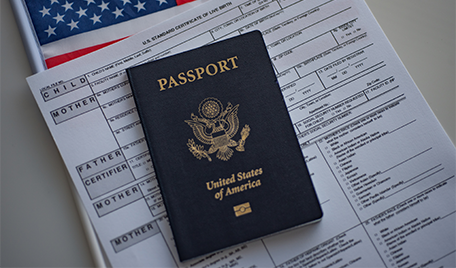
The Future of Birthright Citizenship: A Constitutional Debate
Legal experts Gabriel Chin, Amanda Frost, Kurt Lash, and Ilan Wurman analyze the legal challenges surrounding birthright citizenship and explore the constitutional and historical arguments on all sides of this debate.

Proposed Voter Registration Changes
Presidential actions and proposed legislation in recent weeks could reshape how people register to vote for federal elections. In March, President Donald Trump issued an executive order requiring proof of citizenship for voters, while also aiming to end the practice in states of counting mail-in ballots received after Election Day.
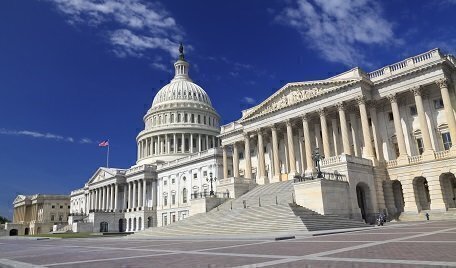
Filibuster or Speech?
On April 1, 2025, Senator Cory Booker of New Jersey set a record for making the longest speaking appearance on the Senate floor. But Booker’s effort did not likely qualify as a “filibuster,” one of the chamber’s unique traditions of attempting to block or delay a vote by not allowing debate on it to end.

The Presidency and Tariffs
In March 2025, President Trump imposed sweeping tariffs on Mexico, Canada, and China. At the beginning of April, he imposed and then mostly reversed across-the-board tariffs on all foreign countries. The tariffs against China, which remain in place, are now being challenged in federal court.
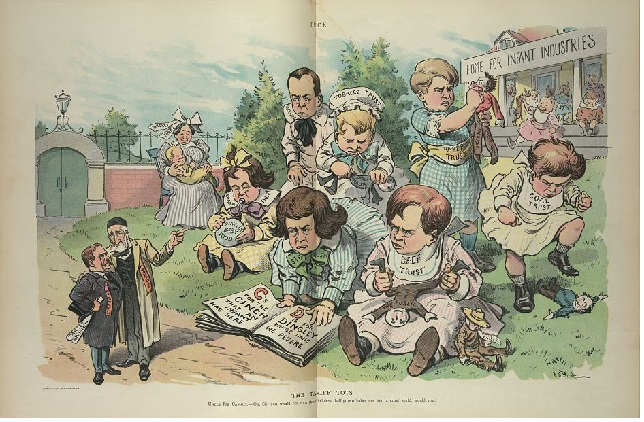
The Day the Revolution Began: Lexington and Concord at 250
In celebration of the 250th anniversary of the Battles of Lexington and Concord, historians Rick Atkinson, Mary Beth Norton, and Rosemarie Zagarri explore the events leading to the first shots of the American Revolution, the battles themselves, and the colonists’ response.
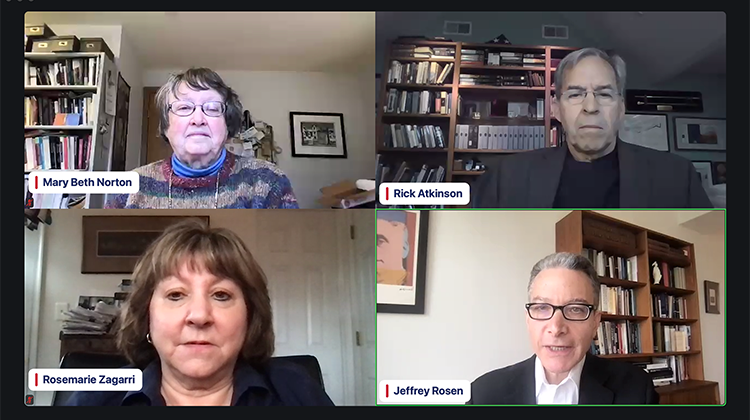
Elon Musk, DOGE, and the Appointments Clause
Elon Musk and the newly created Department of Government Efficiency (DOGE) have been freezing federal spending and laying off federal employees, raising constitutional questions about the scope of its power. At the heart of the debate is the Appointments Clause in Article II of the Constitution.

The Evolution of the Presidential Pardon From Jefferson to Trump
Brian Kalt of Michigan State College of Law and Jeffrey Toobin, author of The Pardon: The Politics of Presidential Mercy, explore the founders’ vision for the pardon power and the use of the presidential pardon throughout American history.
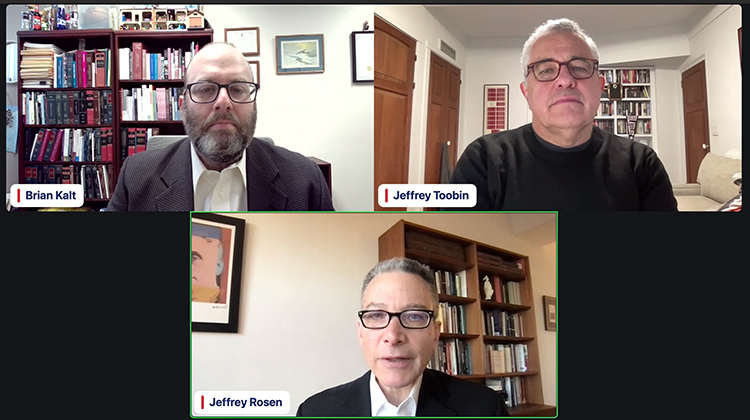
Michael Lewis on Who Is Government?
Best-selling author Michael Lewis discusses his new book, Who Is Government?, examining how the government works, who works for it, and why their contributions matter.

Columbia University Student Deportation Case
Recently, Mahmoud Khalil, who immigrated to the United States on a student visa and later obtained a Permanent Resident Card (sometimes called a “Green Card”), was detained by federal immigration officers and faces possible deportation after the State Department revoked his legal permanent resident status purportedly because of his participation in public pro-Palestine protests. The current case involving Khalil, a student at Columbia University in New York, may center on a law from the 1950s, and how courts interpret it.
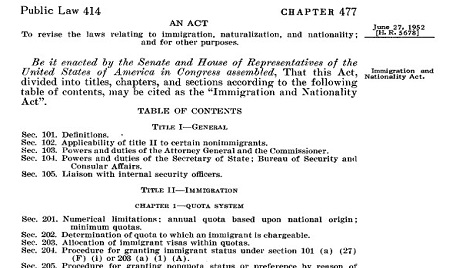
Dana Bash on America’s Deadliest Election
CNN Anchor and Chief Political Correspondent Dana Bash joins for a discussion of her book exploring the little-known story of election violence in 1872 Louisiana and what we can learn from it today.

The State of Partisanship: Confronting the Challenges of a Divided Nation
Authors Jonathan Rauch and Julian Zelizer join for a wide-ranging discussion on their new books and the rise of partisanship in America.
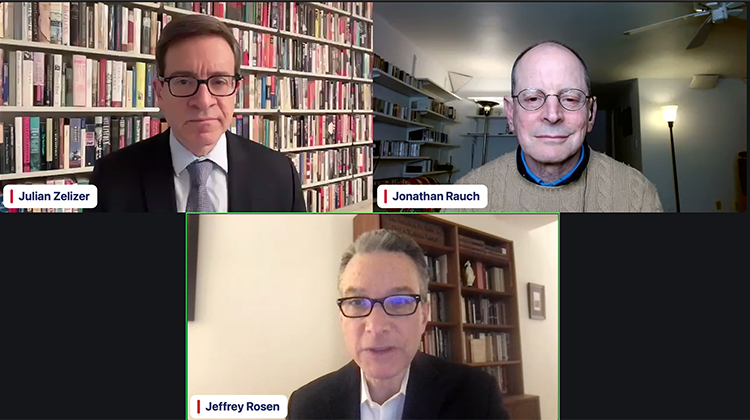
Scope of Executive Power: Part 1
In recent weeks, there has been renewed debate over the scope of executive power and the extent of the president’s authority under the Constitution. Some argue that the president has broad control over the executive branch, while others contend that this power is more limited. But what does the Constitution actually say about executive power, and how has this question been interpreted over time?
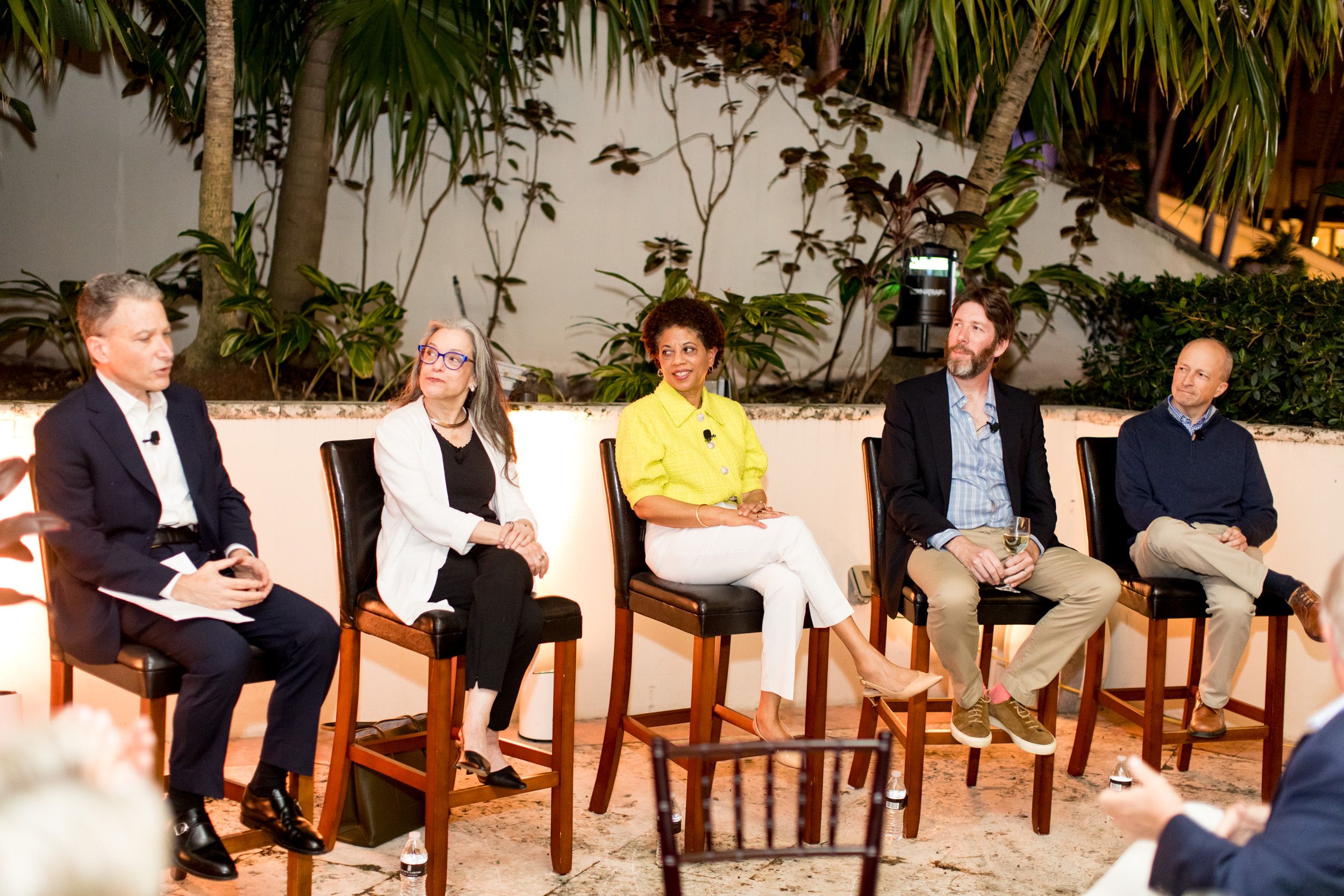
Juan Williams on the Rise of the America’s Second Civil Rights Movement
New York Times columnist Jamelle Bouie joins award-winning journalist Juan Williams for a conversation on Williams’ new book exploring the emergence of a new civil rights era.
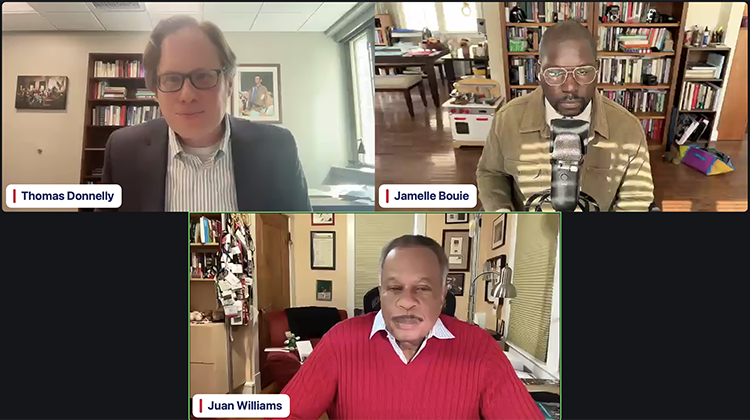
Presidential Term Limits
Recently, a member of the House of Representatives proposed changing the Constitution to allow current President Donald Trump the option of running for a third term as president. Constitutional amendment proposals are common during congressional terms, but few ever make it to the states as proposed amendments.

Executive Orders
In recent weeks, President Donald Trump has issued a series of executive orders addressing immigration, foreign affairs, federal spending, and more. But what exactly are executive orders, and how do they fit into our constitutional system?
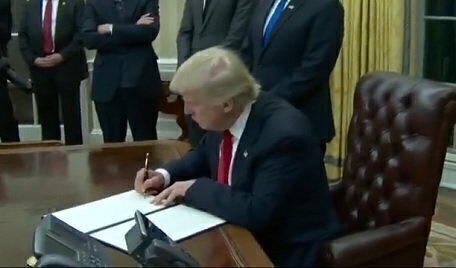
Birthright Citizenship
The question of who qualifies for U.S. citizenship at birth has been a topic of debate for years, but it has gained renewed attention recently. Birthright citizenship means that people born in the United States automatically become U.S. citizens. This approach is rooted in the Citizenship Clause of the 14th Amendment. However, some argue that this approach should be reconsidered, especially regarding children born to noncitizen parents.
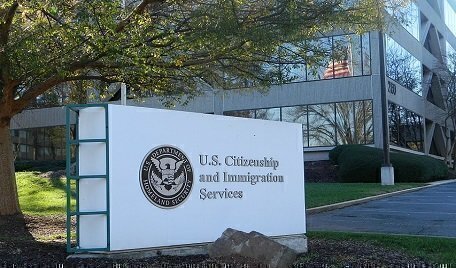
Reconstruction and the Constitution: A Historical Perspective
The National Constitution Center and the Federal Judicial Center convene leading historians for conversations on Reconstruction and the Constitution.
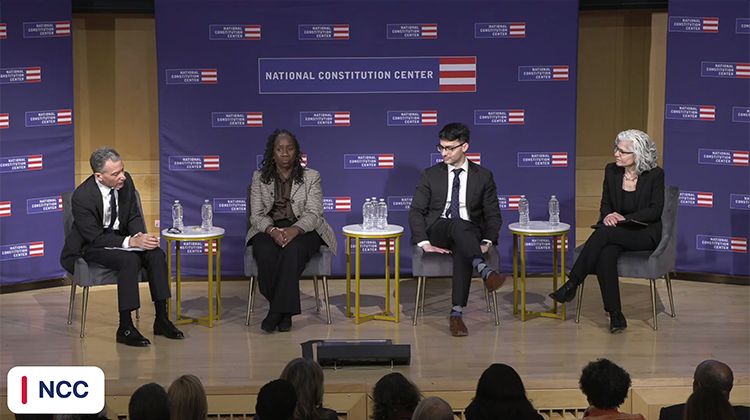
My Fellow Americans: Presidents and Their Inaugural Addresses
Leading presidential historians and contributors to the recently published compendium My Fellow Americans: Presidents and Their Inaugural Addresses, Michael Gerhardt, Kate Masur, and Ted Widmer, reflect on inaugural addresses throughout history.
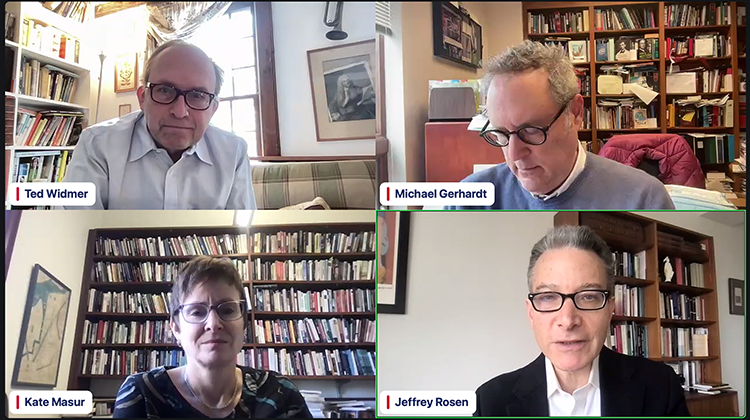
The Life and Constitutional Legacy of Gouverneur Morris
Scholars Melanie Randolph Miller, Dennis Rasmussen, and William Treanor explore the life and constitutional legacy of Gouverneur Morris.
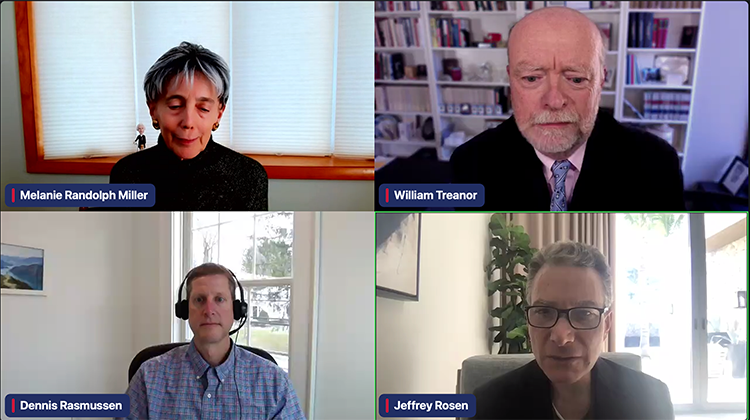
How Religious Were the Founders?
Authors Jane Calvert, Vincent Phillip Muñoz, and Thomas Kidd discuss religious liberty and the founders.

Woodrow Wilson: The Light Withdrawn
Christopher Cox, former U.S. congressman and author of the new book, Woodrow Wilson: The Light Withdrawn, and Professor Geoffrey Stone discuss Wilson’s presidential legacy and constitutional vision.

Native Americans and the Supreme Court
In celebration of Native American Heritage month, Keith Richotte Jr. and Matthew L.M. Fletcher discuss Native American history and law through the stories of landmark Supreme Court cases.
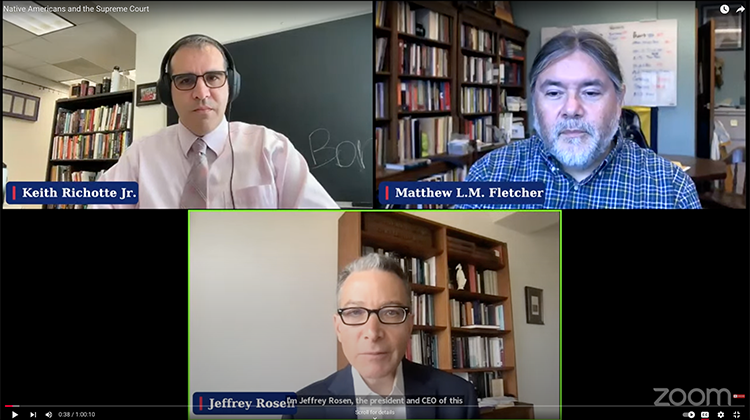
Electing the President: The Popular Vote vs. The Electoral College
Authors Jesse Wegman and Robert Hardaway examine the history and current debate over the Electoral College.
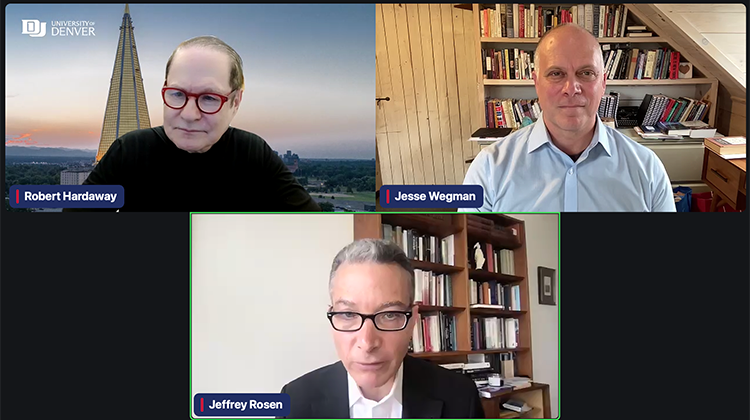
2024 National First Amendment Summit
Co-hosted by FIRE and NYU’s First Amendment Watch

John Lewis: A Life
Author David Greenberg is joined by Professor Kenneth Mack to discuss Greenberg's new biography, John Lewis: A Life, chronicling the remarkable story of the civil rights activist and congressman.

For or Against Constitutional Originalism?: A Debate
Professors Jonathan Gienapp and Stephen Sachs discuss Gienapp's new book, Against Constitutional Originalism: A Historical Critique.
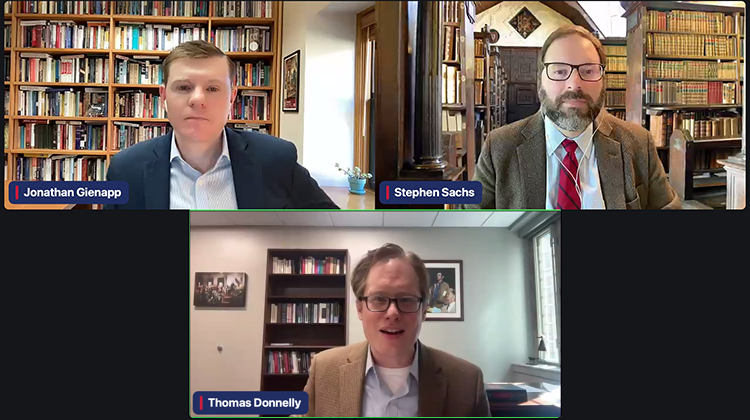
A Conversation With Justice Neil Gorsuch on ‘The Human Toll of Too Much Law’
In celebration of Constitution Day 2024, the Honorable Neil M. Gorsuch, associate justice of the U.S. Supreme Court and NCC honorary co-chair, and his co-author and former law clerk Janie Nitze, discuss their new book, Over Ruled: The Human Toll of Too Much Law.
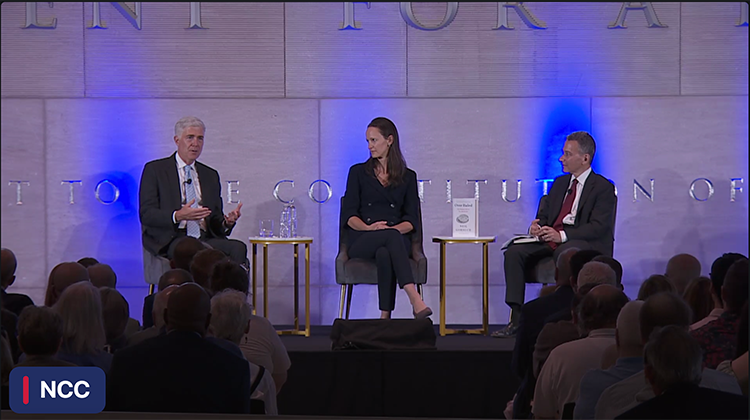
‘The Highest Calling’: A Conversation With David Rubenstein on the American Presidency
Best-selling author, philanthropist, and National Constitution Center Trustee David Rubenstein discusses his new book, The Highest Calling: Conversations on the American Presidency.
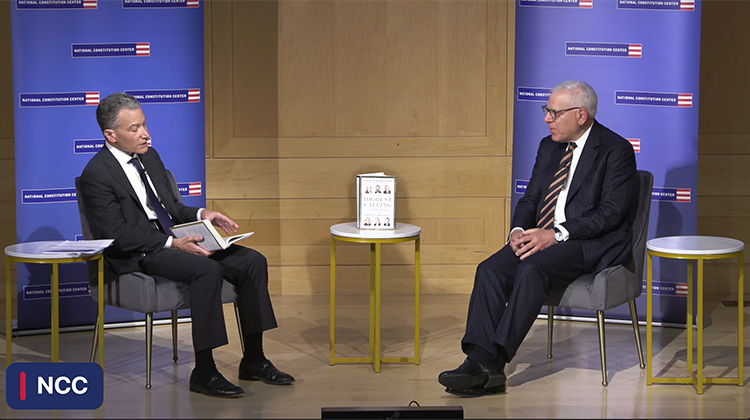
2024/2025 Civic Calendar
The National Constitution Center’s 2024-2025 Civic Calendar explores the history of elections and voting rights in the United States.
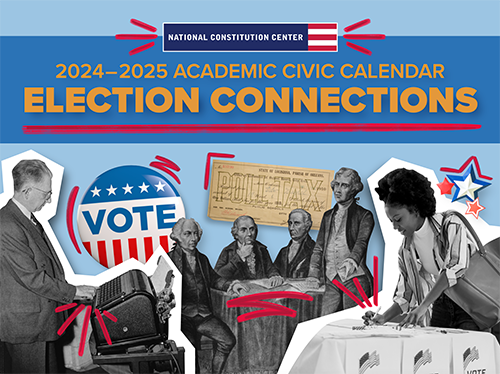
2024 Annual Supreme Court Review
Distinguished legal scholars and Supreme Court analysts Erwin Chemerinsky, Miguel Estrada, Mary Anne Franks, Gregory G. Garre, and Frederick Lawrence discuss, in a conversation moderated by journalist Amy Howe, the important cases of the term including social media moderation, deference to administrative agencies, reproductive rights, and presidential criminal liability. They also discuss what to expect at the Supreme Court next year.
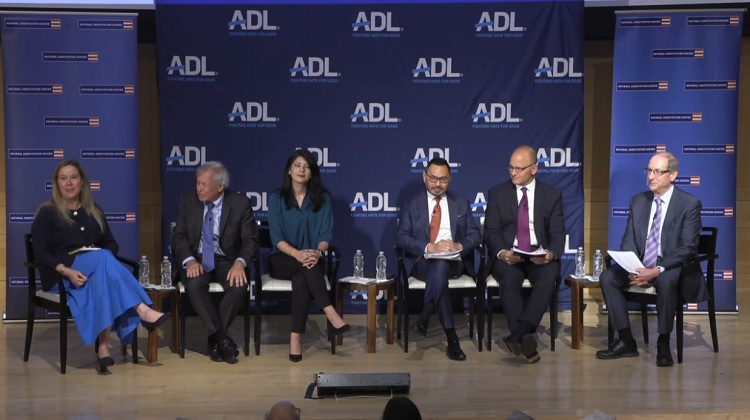
Trump v. United States and the National Security Constitution
International and national security law experts Harold Hongju Koh of Yale Law School, Deborah Pearlstein of Princeton University, and Matthew Waxman of Columbia Law School join for a conversation to explore Trump v. United States and the updated edition of Koh’s landmark book, The National Security Constitution in the Twenty-First Century. Jeffrey Rosen, president and CEO of the National Constitution Center, moderates.
A Conversation on Black Leadership With Eddie Glaude Jr.
In celebration of Juneteenth, political commentator Eddie Glaude Jr. explores how ordinary people have the capacity to achieve a more just and perfect democracy.
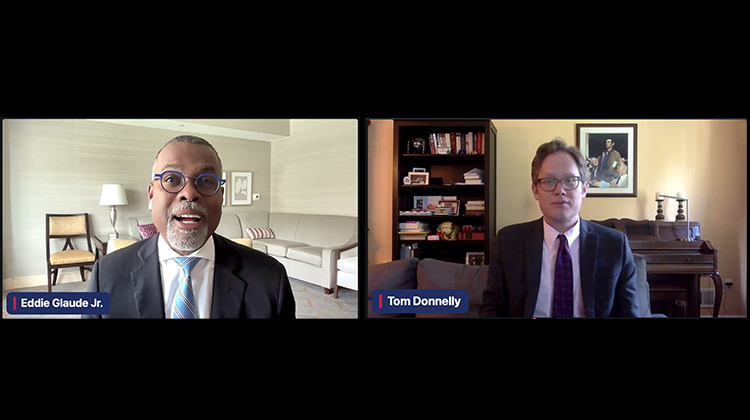
The Intellectual Origins of the Founding and Civil War Constitution
Political theorist William B. Allen and legal historian Alison LaCroix in discussion with Jeffrey Rosen explored the intellectual foundations—from Montesquieu and beyond—of the U.S. constitutional vision and core values.

Can the Constitution Revive the American Dream?
Political analyst Yuval Levin and legal scholar Aziz Rana examine the Constitution as America’s religion and its role in fostering the American dream.

America’s Confrontations With Illiberalism: From Past to Present
Historians Steven Hahn and Manisha Sinha explored America’s historical encounters with illiberalism and its relevance to challenges confronting American democracy today.
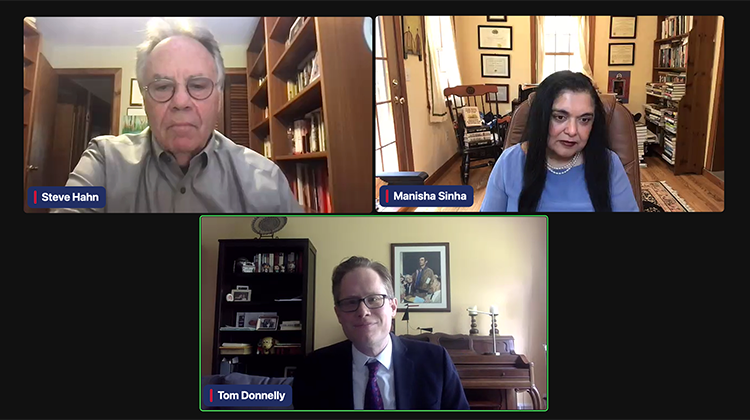
Constitutional Challenges in the Age of AI
Tech policy experts Mark Coeckelbergh, Mary Anne Franks, and Marc Rotenberg in conversation about the evolving relationship between artificial intelligence and constitutional principles.

Living Constitutionally: Insights From A.J. Jacobs and Jeffrey Rosen
A.J. Jacobs, author of The Year of Living Constitutionally: One Man’s Humble Quest to Follow the Constitution’s Original Meaning, in conversation with NCC President and CEO Jeffrey Rosen.

Ensuring Election Integrity: Insights From Meta’s Oversight Board
Members of Meta’s Oversight Board Michael McConnell and Kenji Yoshino discuss the board’s recent work, including its efforts to ensure free and fair elections in advance of the 2024 presidential election.
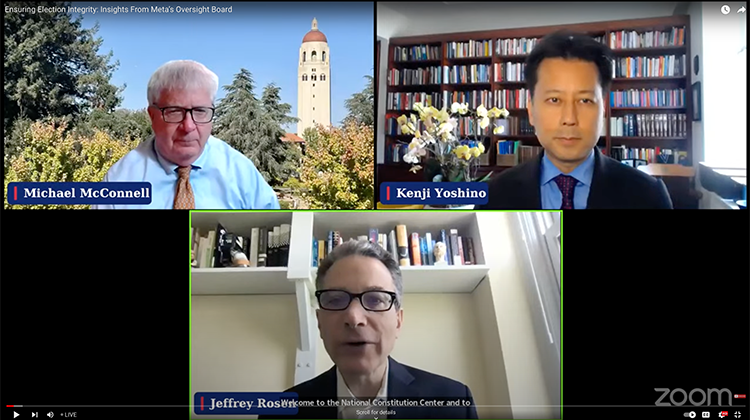
America’s Most Consequential Presidential Elections: From FDR to Reagan
Experts Michael Gerhardt and Andrew Busch explore the pivotal elections of 1932 and 1980. They compare the transformative presidencies of Franklin D. Roosevelt and Ronald Reagan, and trace how founding-era debates between Hamilton and Jefferson over the scope of federal and executive power re-emerged during the New Deal and Reagan Revolution.
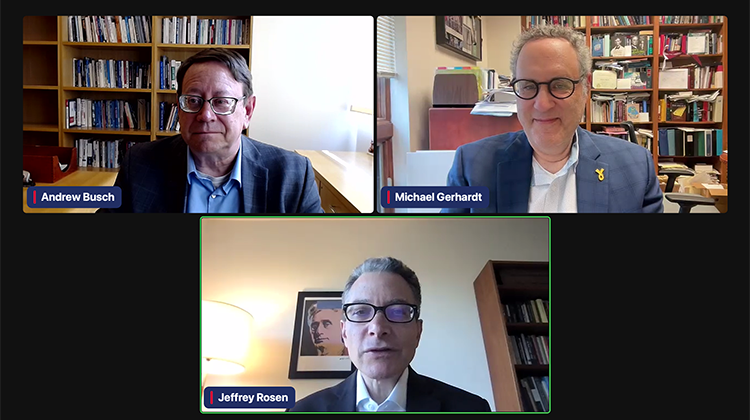
The Legacy of Emmett Till: From Tragedy to Activism
Janai Nelson of the NAACP Legal Defense Fund joins scholar Ronald Collins to discuss Collins’ new book on the shocking story of the trial that followed Emmett Till’s murder and its impact on the Civil Rights Movement.
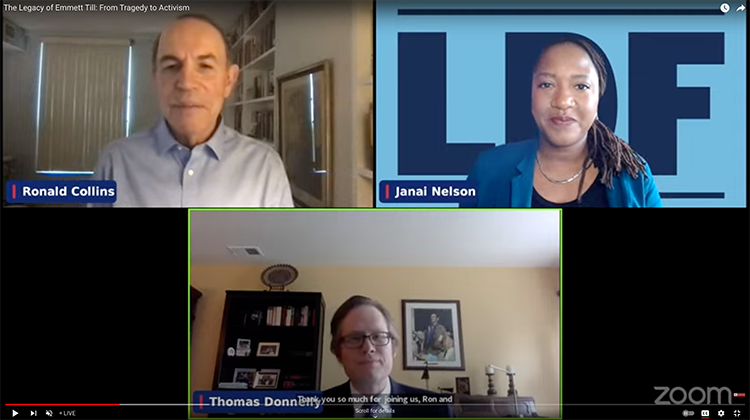
Reading the Constitution: A Book Talk with Justice Stephen Breyer
U.S. Supreme Court Justice Stephen G. Breyer (Ret.) unveils his new book at the National Constitution Center in conversation with NCC President Jeffrey Rosen.
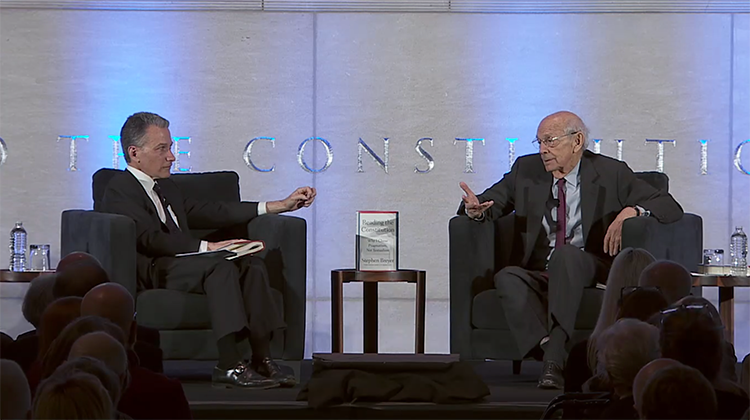
Lincoln’s Lessons: Then and Now
Acclaimed Lincoln historians Sidney Blumenthal and Harold Holzer assess Lincoln’s life and legacy to unveil remarkable similarities between the 19th century and today.
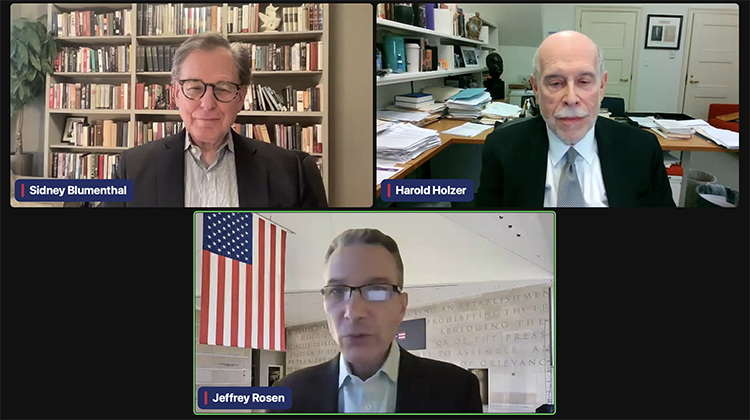
Democracy Checkup: Preparing for the 2024 Election
Legal experts Richard Hasen, Sarah Isgur, and Lawrence Lessig provide a health check on the state of American democracy in the run-up to the 2024 election.

The Pursuit of Happiness: A Book Launch and Conversation with Jeffrey Rosen and Jeffrey Goldberg
National Constitution Center President and CEO Jeffrey Rosen launches his newest book in conversation with Jeffrey Goldberg of The Atlantic and explores what “the pursuit of happiness” meant to our nation’s founders.
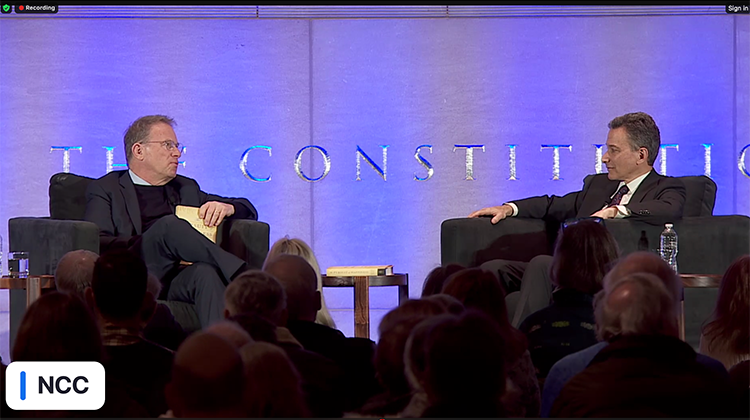
Following Tubman’s Trail: Unveiling Stories of the African American Quest for Freedom
In celebration of Black History Month, historians Edda Fields-Black and James Oakes discuss the history of the African American fight for freedom during the Civil War and Reconstruction periods.

Constitution Drafting Project: A Discussion of Five New Amendments
The Center for Constitutional Design at Arizona State University and the National Constitution Center present a discussion on the NCC’s landmark Constitution Drafting Project, featuring members of the drafting teams: Caroline Fredrickson of team progressive, Timothy Sandefur of team libertarian, and Ilan Wurman of team conservative.

David Hume and the Ideas That Shaped America
Authors Angela Coventry, Dennis Rasmussen, and Aaron Alexander Zubia discuss Hume’s philosophical legacy and its profound impact on the shaping of America.

Unpacking the Supreme Court’s Tech Term
Legal experts Alex Abdo, Clay Calvert, and David Greene explore key tech cases before the Supreme Court and important questions at the intersection of technology and law.

Loyalists vs. Patriots and the American Revolution
Historians Joyce Lee Malcolm and Eli Merritt explore the differing opinions of Loyalists and Patriots and how both groups continue to shape our understanding of American identity.
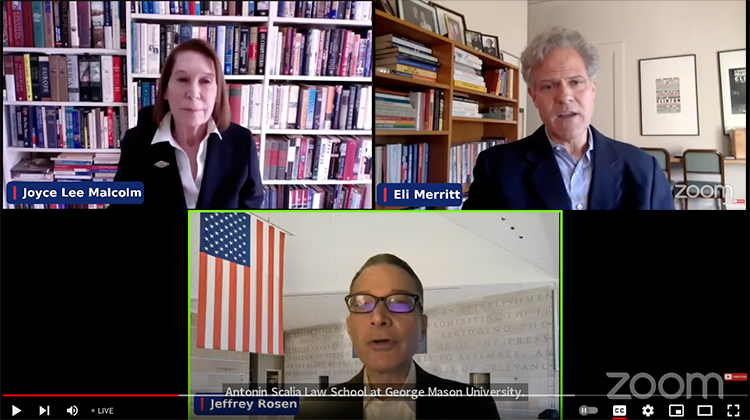
The Taft Court: Making Law for a Divided Nation
Legal scholar Robert Post explores the history of the Taft Court and the contrasting constitutional approaches among its justices, including Louis Brandeis and Oliver Wendell Holmes, Jr., among others.

From Spies to Leakers: The History of the Espionage Act
Legal scholar Heidi Kitrosser and political historian Sam Lebovic discuss one of the most contentious statutes relating to the First Amendment and how it has been used over time.

Democracy, Populism, and the Tyranny of the Minority
Political scientists Frances Lee of Princeton University, Steven Levitsky of Harvard University, and Kurt Weyland of the University of Texas at Austin explore some of the new theories and approaches to the challenges facing American democracy in 2023 and beyond.

What the Black Intellectual Tradition Can Teach Us About Democracy
New York Times columnist Jamelle Bouie and political scientist Melvin Rogers explore the ways key African American intellectuals and artists reimagined U.S. democracy.

From Founders to Politicians: Political Divisions at America’s Birth
Historians Carol Berkin and H.W. Brands explore the hotly contested election of 1800, political partisanship, and nationalism in early America.

Native Peoples and Redefining U.S. History
Historians Ned Blackhawk and Brenda Child shed light on the central role Indigenous peoples have played in shaping our nation’s narrative.

First Amendment Exhibit Guide
Download our First Amendment Exhibit Guide
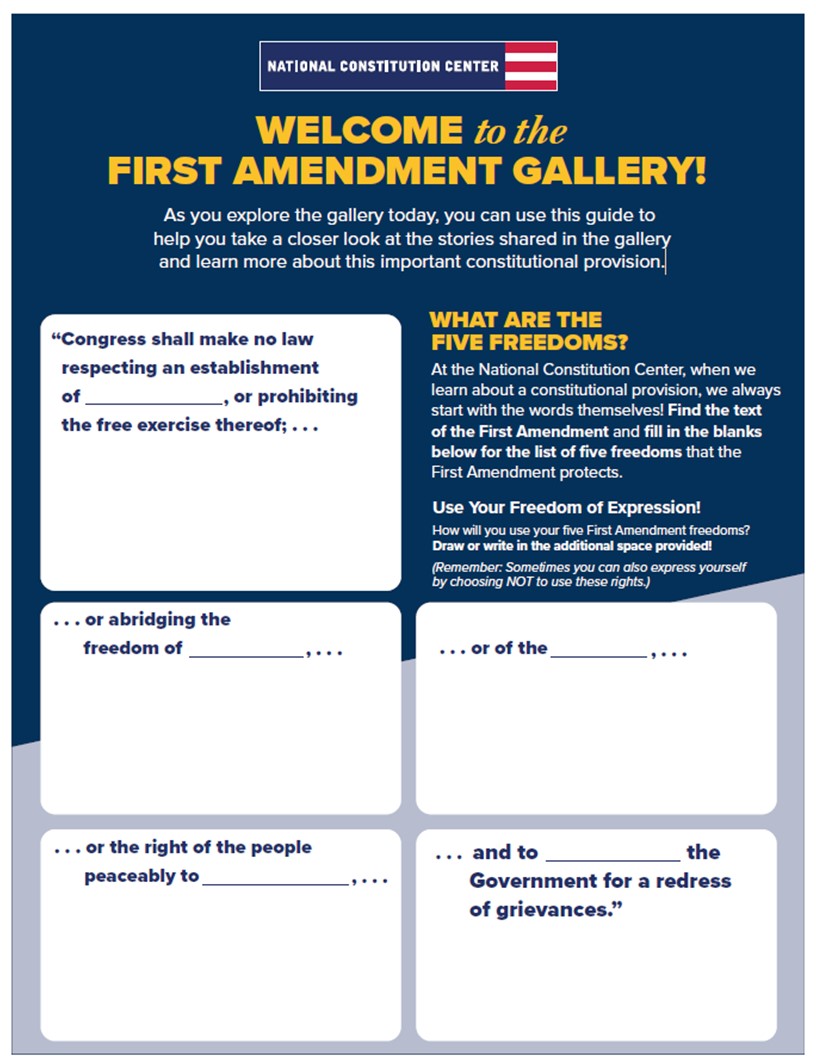
From FDR to Biden: The Creation of the Modern Presidency
Presidency experts Stephen Knott, Sidney Milkis, and Barbara Perry explore how the institution of the modern presidency has evolved through the lens of studying the constitutional visions and approaches to executive power of some of America’s past presidents.

The Forgotten Years of the Civil Rights Movement
Prize-winning historians Kate Masur and Dylan Penningroth discuss their latest books exploring the hidden histories behind the struggle for justice and equality.
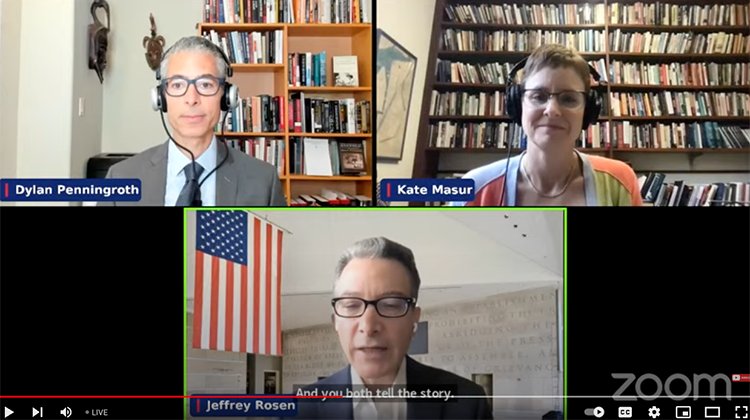
How to Interpret the Constitution: A Citizen’s Guide
Bestselling author Cass Sunstein unveils his new book with leading constitutional expert Philip Bobbitt to discuss the current controversies surrounding constitutional interpretation.

2023/2024 Civic Calendar
The National Constitution Center’s 2023-2024 Civic Calendar explores the Civil Rights Movement.
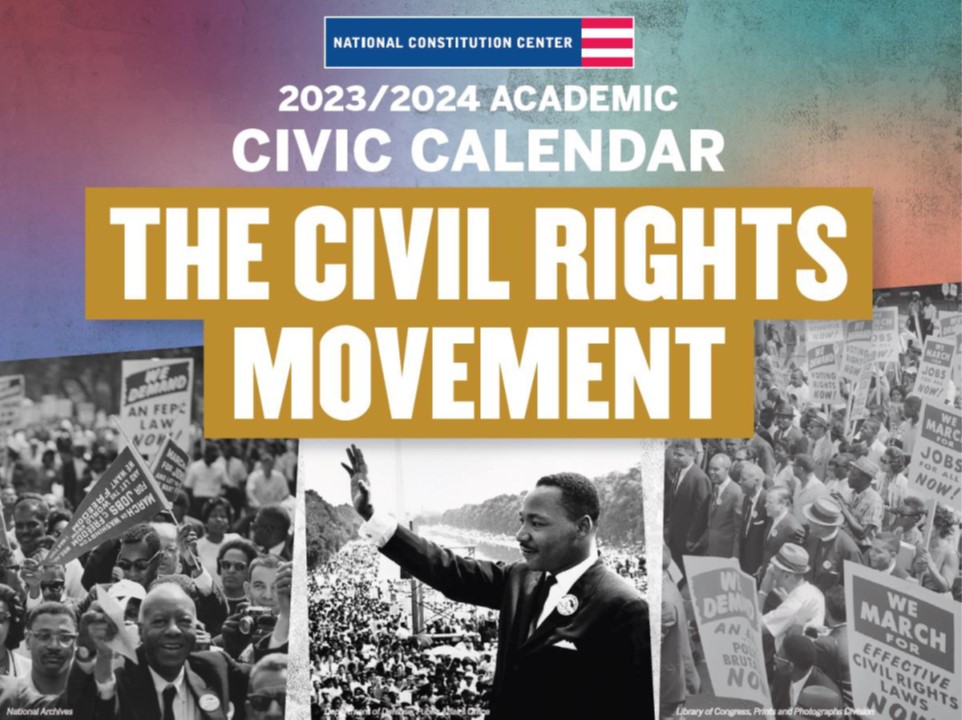
The History of Religious Liberty in America
Constitutional law experts Marci Hamilton and Michael McConnell in conversation with Jeffrey Rosen about the America's founders views on religious liberty.

National First Amendment Summit
Free-speech advocate Salman Rushdie and others explore the increasing threats to freedom of expression with free-speech.

Reconstruction Amendments: Historical Context and Modern Meaning
Morgan Lewis and the National Constitution Center present a program exploring the text, history, and enduring legacy of the Reconstruction Amendments with historians Christopher Brooks, Allen Guelzo, and Manisha Sinha.

2023 Annual Supreme Court Review
The National Constitution Center and ADL host legal experts and court watchers to discuss the most significant decisions of the term.
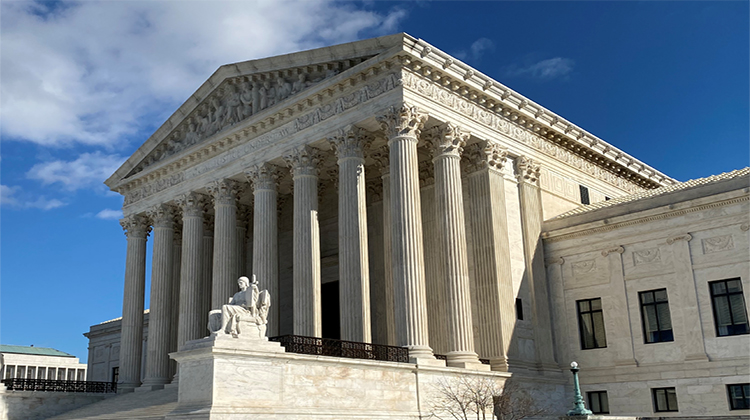
Montesquieu and the Constitution
Political theorists explore the influence of Montesquieu on American democracy.
The Modern History of Originalism
Libertarian and conservative scholars conduct an in-depth comparative look at the different strands of originalism.
Clarence Thomas and the Constitutional Stories that Define Him
Federal judges discuss the constitutional legacy of Supreme Court Justice Clarence Thomas.
Deliberation and Democratic Norms in America
Authors explore strategies for overcoming partisan gridlock.
The State of Free Expression in the U.S. and Abroad
Free speech advocates examine the global state of free expression.
Article III and Supreme Court Term Review Featuring Ali Velshi (All Levels)
For our final Fun Friday Session of the 2022-2023 school year, MSNBC’s Ali Velshi returns, joining National Constitution Center President and CEO Jeffrey Rosen to discuss the Supreme Court and some of the biggest cases the justices are considering this term.
The Shadow Docket Debate
Experts explore the current debate surrounding the Supreme Court's shadow docket.
The Evolution of Judicial Independence in America
A multi-panel event exploring the growth of an independent judiciary in the U.S.
The Future of Affirmative Action
Scholars discuss the affirmative action cases before the Supreme Court and their potential impact.
The Fourth Amendment (Advanced)
In this session, students will examine the historical context and the drafting of the Fourth Amendment.
The Fourth Amendment (Introductory Level)
In this session, students will examine the historical context and the drafting of the Fourth Amendment. Students will explore what the Fourth Amendment says and means.
Women and the American Idea
Authors discuss key women who inspired constitutional change throughout American history.
Solicitors General and the Supreme Court
A discussion exploring the various approaches to constitutional interpretation—including originalism—with solicitors general.
AP Court Case Review Featuring Caroline Fredrickson (All Levels)
In this fast-paced and fun session, Caroline Fredrickson, one of the legal scholars behind the National Constitution Center’s new Supreme Court Case Library, joins Chief Learning Officer Kerry Sautner to review the top 15 Supreme Court cases from a typical course of study for an AP Government class.
AP Court Case Review (Advanced Level)
In this fast-paced and fun session, students will review the top 15 Supreme Court cases from a typical course of study for an AP Government class. This class helps students better understand these landmark Supreme Court cases and the U.S. Constitution’s foundational principles.
AP Court Case Review (Introductory Level)
In this fast-paced and fun session, students will review the top 15 Supreme Court cases from a typical course of study for an AP Government class.
Civic Virtue and Citizenship
Authors discuss their new books on civic virtues in democratic societies.
Five New Amendments: Next Steps for Constitutional Change
The Center for Constitutional Design and the National Constitution Center present a discussion of the amendments proposed by the Constitution Drafting Project in Washington, D.C.
The Constitutional Role of the State Solicitor General
A bipartisan group of state solicitor generals discuss the crucial role of the office.
Amendment Reform in America and Abroad
Experts survey the constitutional amendment process around the world.
Lessons from Tocqueville in America
Scholars discuss Tocqueville’s masterpiece and its lessons for modern Americans.
Women’s Suffrage Featuring Lisa Tetrault (All Levels)
For this Friday session, Lisa Tetrault, associate professor at Carnegie Mellon University joins Center Chief Learning Officer Kerry Sautner for a discussion the women’s suffrage movement and the story of the 19th Amendment. Professor Tetrault explores both of these topics in her book, The Myth of Seneca Falls: Memory and the Women's Suffrage Movement, 1848-1898, as well as in her upcoming work. She will also discuss her career as an historian and author, as well as answer questions from participants.
Women’s Fight for Equality and the 19th Amendment (Advanced)
In this session, students will trace the roots of the women’s rights movement—from early reform efforts in the 1800s to the ultimate decision to pursue voting rights. This class will explore the constitutional arguments over women’s suffrage, study the historical context of the fight for suffrage over 70 years, and cover the tactics suffragists used to persuade state legislatures and the national government to recognize voting rights for women.
Women’s Fight for Equality and the 19th Amendment (Introductory)
In this session, students will trace the roots of the women’s rights movement—from early reform efforts in the 1800s to the ultimate decision to pursue voting rights. This class will explore the constitutional arguments over women’s suffrage, study the historical context of the fight for suffrage over 70 years, and cover the tactics suffragists used to persuade state legislatures and the national government to recognize voting rights for women.
Slavery and Liberty at America’s Founding
Scholars discuss the complex relationship between slavery and the American Founding.
First Amendment with David French (All Levels)
In this session, writer David French joins National Constitution Center President and CEO Jeffrey Rosen for a discussion on the First Amendment freedoms of speech and the press, examining various types of speech, including symbolic speech, hate speech, and political speech.
First Amendment - A Celebration of African American history (Introductory)
In this session, students will examine the historical context and the drafting of the First Amendment—focusing especially on the factors motivating America’s Founding generation.
Affirmative Action and the 14th Amendment
Experts explore the relationship between affirmative action and the 14th Amendment.
Civil Rights Movement with Hasan Kwame Jeffries (All Levels)
In this session, Hasan Kwame Jeffries, associate professor of history at The Ohio State University, joins Center President and CEO Jeffrey Rosen to explore the civil rights movement, including key figures and significant documents from that time period.
FDR and the Transformation of the Supreme Court
Experts discuss Franklin D. Roosevelt’s lasting impact on the Supreme Court.
Live Class: 27 Amendments in 27 Minutes (Give or Take) Featuring Kermit Roosevelt
In this fast-paced Fun Friday session, Kermit Roosevelt will review all of the 27 amendments added to the Constitution and explore the big ideas and changes that each one has made on our system of government.
Justice William O. Douglas: Public Advocate and Conservation Champion
Judges discuss the lasting legacy of Justice William O. Douglas.
Cicero and the Constitution
Experts explore how Roman statesman and philosopher Cicero influenced the the Constitution and American political thought.
The Battle for the American West
Discussing U.S. westward expansion, manifest destiny, and the impact on native peoples and tribes.
Live Classes: Slavery in America (Advanced)
In this session, students engage in a conversation on slavery in America from the Constitution to Reconstruction. This session will explore the Constitution; the 13th, 14th, and 15th Amendments; and the Reconstruction founders’ vision of a “Second Founding” for our nation.

Live Classes: Slavery in America (Introductory)
In this session, students engage in a conversation on slavery in America from the Constitution to Reconstruction. This session will explore the Constitution; the 13th, 14th, and 15th Amendments; and the Reconstruction founders’ vision of a “Second Founding” for our nation.

Thomas Jefferson: The Reader and Writer
Noted historians discuss the life and legacy of the founding father through the lens of his own education.









